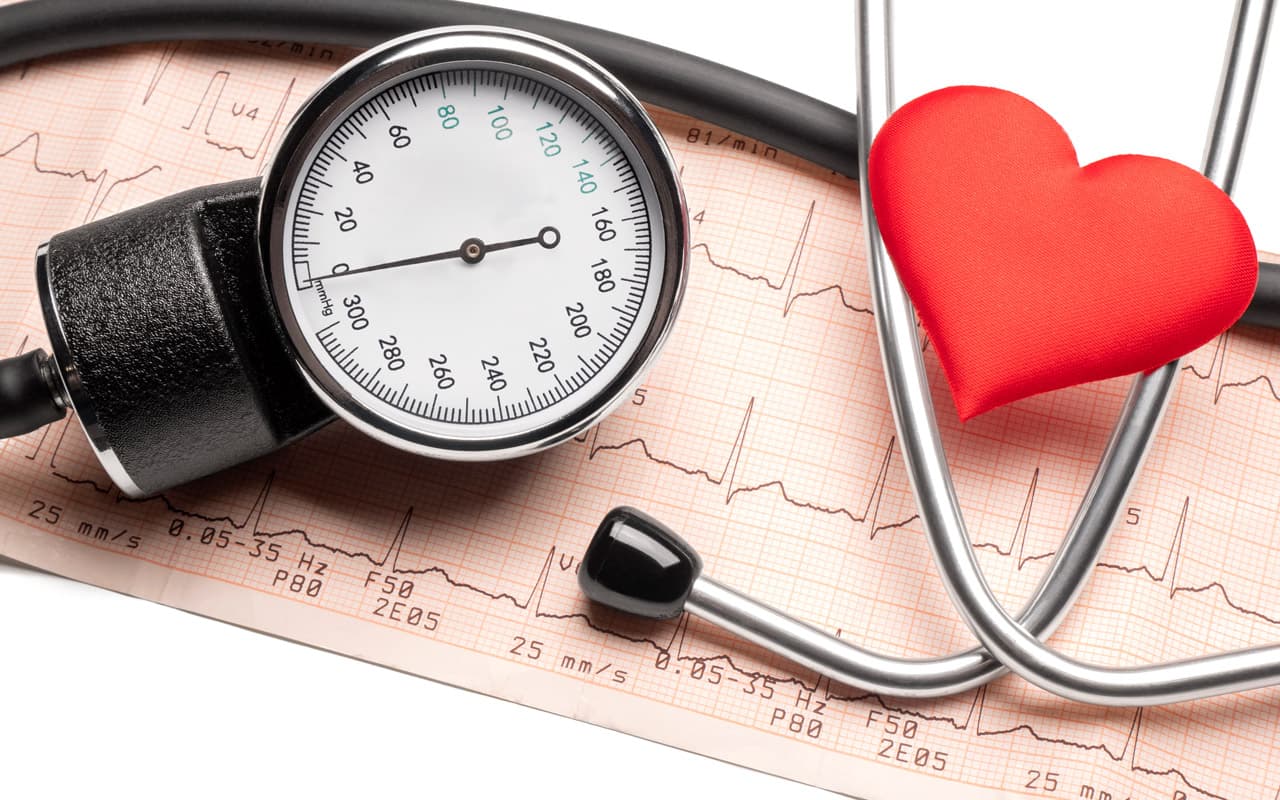Straight From the Nurse's Mouth: 7 Ways to Avoid Heart Disease

Written by Valerie Henderson on Tue Oct 06 2020.

A 14-year study of more than 84,000 nurses conducted by researchers at Harvard Medical School provides a pretty clear blueprint for heart-healthy living. The study determined that the biggest common denominators among people with healthy hearts are eating low-fat diets, refraining from smoking, exercising regularly, maintaining a healthy weight, and drinking alcohol in moderation. These practices are so effective, in fact, that they were found to reduce the risk of heart attack and heart-related death by five times.
While “low-fat diet, no cigarettes, regular exercise, healthy weight, and alcohol in moderation” sounds like a super simple prescription for optimal heath, keep this in mind: Only 3 percent of the study’s participants actually met all five criteria, proving that the vast majority of us, including those in the medical field, need a little help setting off on the right path.
Whatever your job, age, gender, or lifestyle, these 7 tips can help you build a healthier heart starting today.
1. Start moving.
Regular exercise can help strengthen your heart, trim your waistline, increase HDL cholesterol (that’s the “good” cholesterol), lower blood pressure, and just plain make you feel better. The best news is that it doesn’t take much time. The American Heart Association recommends 30 minutes of moderate to vigorous exercise daily. As with any program, check with your doctor before starting a new workout, and phase into longer periods of exercise gradually. In addition, try to avoid being a weekend warrior after being a couch potato all week, which is a surefire recipe for injury.
2. Stop smoking. Like, right now.
In the study we mentioned above, just one cigarette per day tripled the risk of heart trouble. And other studies have found that smoking 25 cigarettes a day can raise the risk of heart disease by 15 times. Cigarettes severely damage arteries and speed the buildup of cholesterol and plaque. The good news is that within two years of quitting, the threat of heart attack can drop to the level of someone who has never smoked. So stop. Really. Please.
3. Ease up on the nightcaps.
One or two cocktails a day can help raise HDL (that’s the good one) cholesterol and prevent dangerous blood clots, but any more than that can increase your blood pressure. Very heavy drinkers can also experience damage to the heart muscle, also known as cardiomyopathy. Federal health agencies recommend that women limit alcohol intake to one drink a day since their bodies metabolize alcohol differently than men, while men limit their intake to no more than two drinks per day.
4. Watch your blood pressure.
High blood pressure increases the risk of coronary artery disease and stroke, so try to keep yours at less than 120/80. If you test 120-139/80-89, you are in the prehypertension range and you should see your doctor to discuss lifestyle changes. If you have high blood pressure, meaning 140/90 or more, your doctor will probably prescribe medication to get it under control.
5. While you’re at it, watch your cholesterol.
Too much cholesterol can lead to plaque buildup, so it’s best to keep your total cholesterol level below 200 milligrams per deciliter. Levels between 200 and 240 mg/dL are considered worrisome, and anything over 240 is a serious threat. The basic idea here is to keep your “good” HDL cholesterol high and your “bad” LDL cholesterol level low. Men’s HDL should be at least 40 mg/dL, while women’s should be at least 50 mg/dL. If you don’t have coronary heart disease and have fewer than two major risk factors (which include obesity, high blood pressure, or family history of premature heart trouble), your LDL should be below 130 mg/dL. If you diabetes mellitus or coronary artery disease and your LDL goes above 100, your doctor will probably recommend that you take cholesterol-lowering drugs.
6. Amp up your intake of heart-friendly foods.
Eating right and eating yummy aren’t mutually exclusive. You can lower your cholesterol level, protect your arteries, and slash your risk of heart attack while savoring every bite of dishes like chicken and black bean tostadas and blueberry pancakes.
Here are the rules of thumb: Get only 30 percent of your calories from fat, eat at least five servings of fruits and vegetables every day, opt for less red meat and more fish and chicken, and consume plenty of whole grains. Most people are able to cut their intake of artery-clogging saturated fat by 50% simply by avoiding butter, margarine, mayo, fatty meats, and dairy products made from 2% or whole milk. In addition, try to avoid processed foods with added sugar and keep your salt intake at less than 1,500 milligrams a day.
7. Pay attention to emotional signals.
Emotional distress is rough on the heart, and seeking professional help can be a true lifesaver. Multiple studies suggest that otherwise healthy depressed people are more likely to develop heart disease than peers who aren’t depressed. In fact, Johns Hopkins University studied 1,500 subjects over the span of 13 years and found that an episode of depression can increase the risk of a heart attack by four times. If you’re suffering from depression or anxiety, talk to a therapist about ways to decompress and channel your energy into healthy activities.
The road to a healthy heart starts at home, but it may need to detour through a doctor’s office. If you have diabetes, high blood pressure, or high cholesterol, seek medical help to give your heart maximum protection. And be wary of anyone who tells you they have an easier route to a strong heart. There are no magic bullets, and if something sounds too good to be true, it probably is.
Other Articles You May Like

Tight and Swollen Legs in Seniors: What You Should Know About Peripheral Edema
This article will discuss what peripheral edema is, its symptoms, and its causes. We will also provide some tips on treating and preventing peripheral edema and warning signs that mean you need to seek medical care.
Medically Reviewed by Kiera Powell, R.N.

Best Products to Manage Your High Blood Pressure of 2025
High blood pressure affects people of all ages, but it's especially common in seniors. One study, conducted by the U.S. Centers for Disease Control and Prevention (CDC), found that more than 63% of Americans aged 60 and older have hypertension.
Read More >
Having written for companies ranging from MTV to the Olympics, Valerie Henderson spearheads Carewell's communications and PR efforts. A resident of Park City, Utah, Valerie enjoys four of the things her region is famous for: hiking, independent film, a house full of kids, and weak beer.